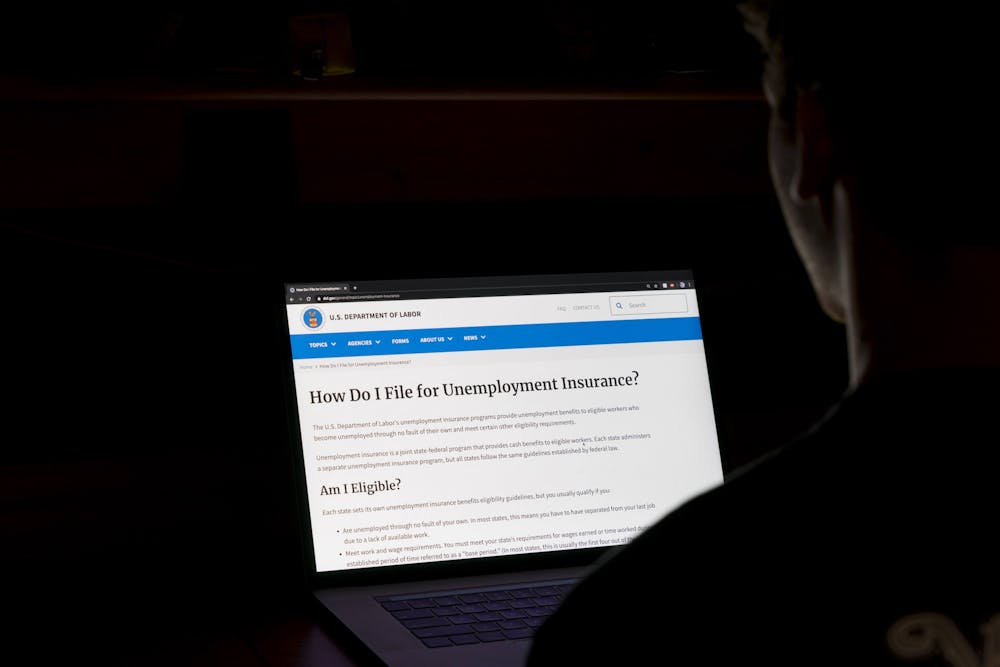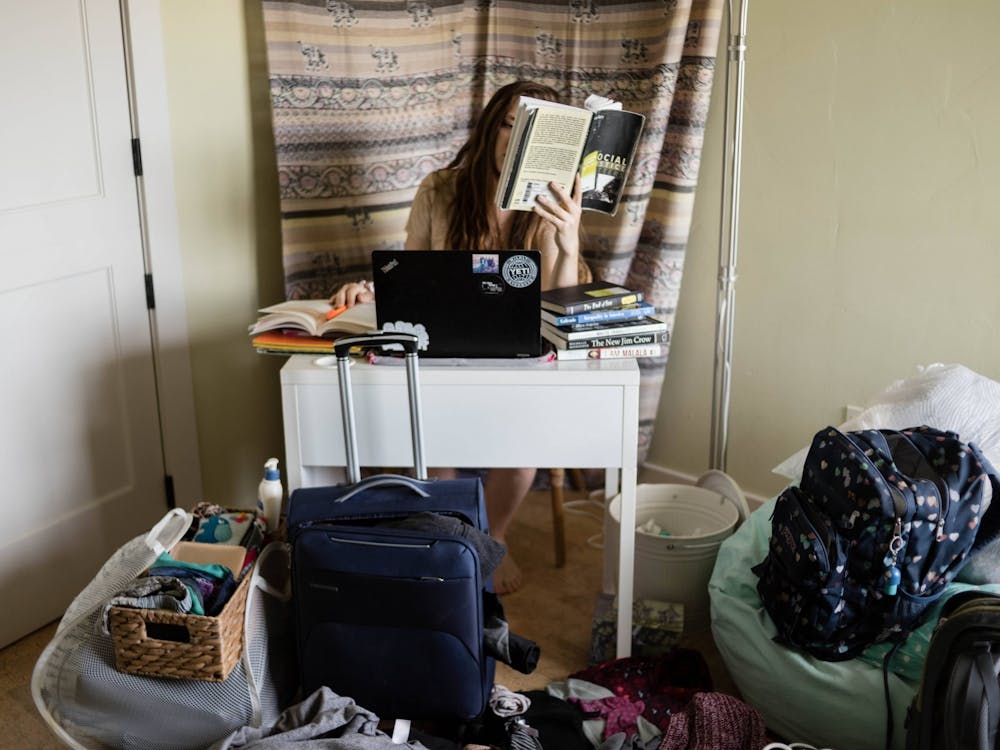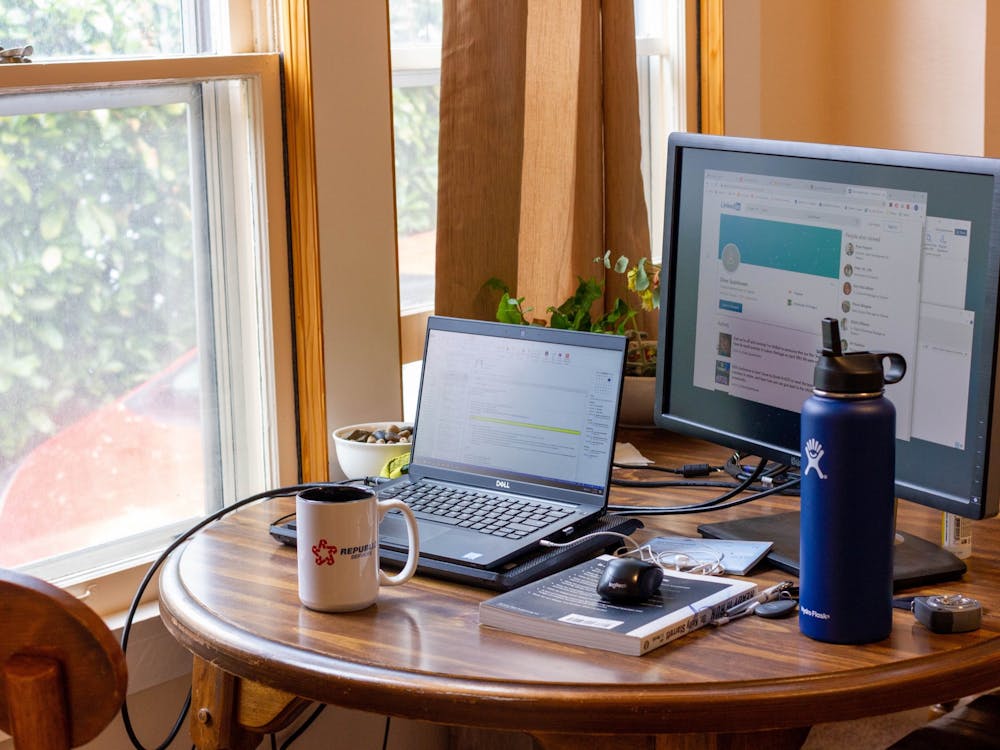The economic shockwave caused by the coronavirus pandemic has rocked the nation, and in the last four weeks, unemployment claims shot up to more than 17 million. Students who have lost their jobs to coronavirus complications are dealing with an uncertain future, and some have decided to join the millions of other Americans filing for unemployment.
“I worked at The Commons … and that was just for any outside costs,” sophomore business major Riley Beavers said. “When I lost my job and had to move back, I lost that income. I honestly wasn’t too worried about it at first, but the more that I looked into future rent costs, the more that I looked into the following year, I wasn’t sure if I was going to be able to get a job this summer at this point.”
Some students have the opportunity to work their campus jobs remotely. Originally, departments could assign online training for students to continue to work if their department ran out of assignments, according to the Student Employment Office. The Student Employment Office updated its guidelines on April 2, making this option unavailable in accordance with the new strategies implemented to help the university save money. For students whose departments have run out of work, you can fill out the “Lack of Work-Student Employment Form.”
Even for students who are still able to work their campus jobs remotely, the summer job market is looking bleak. Internships and job offers have been canceled and rescinded as the crisis progresses, making it difficult for students to find work for the foreseeable future. With new guidelines for unemployment included in the federal government's coronavirus relief bill, specifically, coverage for part-time workers, many college students are now eligible for unemployment benefits.
Filing for those benefits may still prove to be challenging. With how backed up the system has been, and how much the original rules have changed, the process might be difficult to follow.
“It crashed every couple minutes,” sophomore operations and technology management major Lexie Rudolph said. “It’s also a little bit confusing … it’ll ask you in the beginning if you’re returning back to your job, because that’s part of the stimulus (bill), if you’re returning back within a certain amount of time then you don’t have to be seeking a job. The system right now in Oregon wasn’t really set up for that.”
The standard unemployment questions are still on the application, according to Rudolph, which might make it a confusing process when filing as a full-time student.
“It definitely wasn’t super straightforward because of that,” Rudolph said. “I just kind of hope I did everything right, but I don’t really know.”
Every state has different guidelines and restrictions for filing for unemployment, and where you apply will depend on your situation. Beavers decided to apply in her home state of Washington because she was more likely to receive benefits from that state from her past summer work as a barista than from her work on campus.
For students interested in applying for unemployment, there are details on eligibility on the U.S. Department of Labor website. You can also use the website to search for the application for your state. If you are on the fence about applying, the worst they can do is say no. You need to apply for the state you were working in, even if you are not currently living there.
For those who are not able to apply for unemployment, or are denied for not meeting the eligibility requirements for their state, there are still stimulus checks on the way. These checks will not be going to everyone, however, and students 17 and older who are claimed as a dependent by their parent or guardian on their taxes will not be receiving the $1,200 check. These parents will also not be receiving the $500 bonus for that dependent.
The government is not the only option for income, as some jobs and internships are being adjusted to allow for remote work. Students who need help finding a job can still contact the Career Center at UP by email (career@up.edu) or phone (503-943-7201).
“I’ve been working with the Career Center as well as with Gwynn Klobes (Pamplin School of Business P4 program director),” Beavers said. “So, what’s happening right now for the future is there are virtual internships developing. What that means is that there are new opportunities for students to have a summer internship that is completely online.”
The landscape of the economy has been changing rapidly as the coronavirus has forced schools to shut down and non-essential businesses to close. This has been the driver for such high unemployment claims, and the need for financial aid.
There is a particular danger of a harmful recession if firms begin to go bankrupt and fail to pay back obligations such as mortgages and loans, according to Associate Professor of Economics Todd Easton. If businesses fail to pay back the banks, the bank itself could go bankrupt, or these banks will be unwilling to extend loans out of fear of not getting paid back, Easton said. This hurts companies who need that money to operate.
This kind of recession would mean a tough time for graduating seniors. Right now, there is not enough information to say definitively whether or not the economy will take a turn for the worst. The government has been implementing aggressive fiscal policies to try and reverse a deep recession.
“The optimistic scenario is that we do a really good job policy-wise at responding to this, and then the economy springs back once we can reasonably start allowing people to go to restaurants and hotels, and all the things that have shut down,” Easton said. “The whole public health piece is super important.”
Austin De Dios is a reporter for The Beacon. He can be reached dedios22@up.edu.








